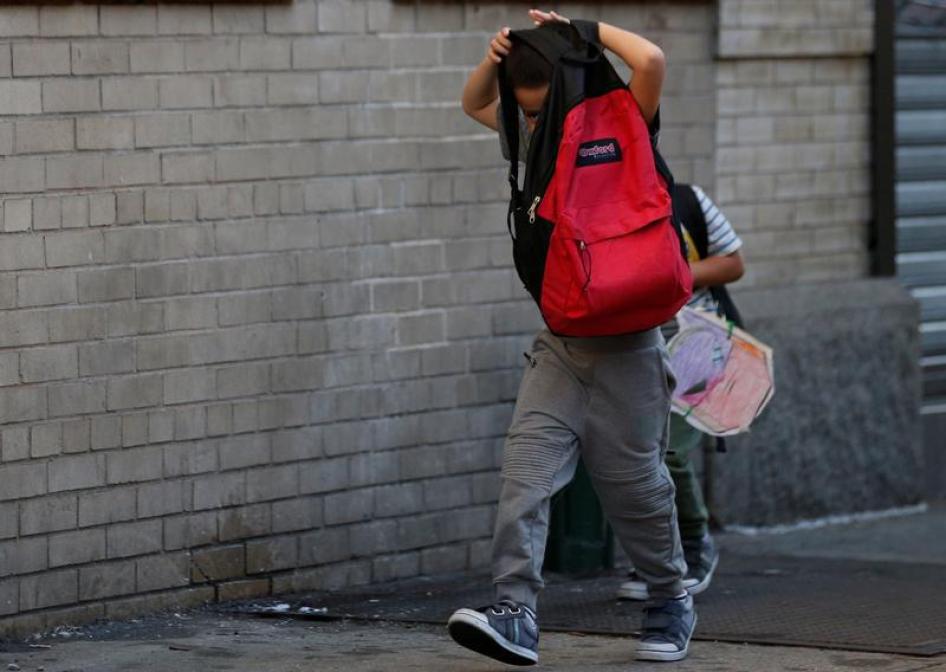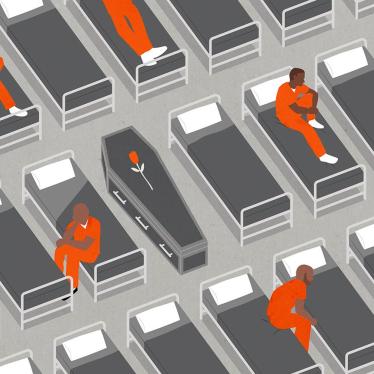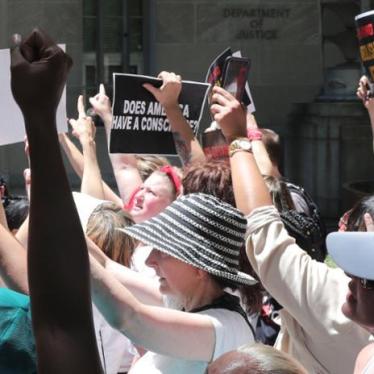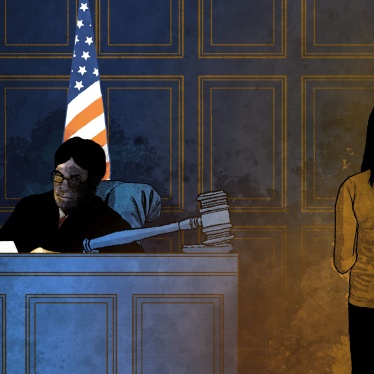Shaking with sobs, the man across from me searched for words to describe the month he’d spent apart from his 10-year-old son after US immigration officials detained and forcibly separated them. “It’s the worst thing that could ever happen to me in my life,” said Edwin, from Honduras.
I’ve spent the past few days in immigration detention centers in Texas interviewing parents like this man whose children were taken from them under the Trump administration’s family separation policy. (All names are pseudonyms).
They gave similar accounts. After they spent a short time in a frigid Border Patrol holding cell, immigration officers told parents they’d be going to court for a few hours. “The agents told us our children would be waiting for us when we returned from court,” said Jessyca from El Salvador.
That was a lie. By that point in mid-June, immigration agents were routinely separating families shortly after detaining them.
“When we realized we weren’t going back to where our children were, we all started crying and pleading,” said Edwin. Like many other parents, he’d fled to the US with his son after armed men told him they’d both be killed unless he worked for their gang. Seeking safety for his son, he instead had spent weeks in anguish, unsure of his son’s whereabouts and well-being.
Most of the families forcibly separated before Trump’s executive order haven’t been reunited, despite an approaching court-ordered deadline to do so. Some parents I spoke with still don’t know where their children are, and others have talked to their children just once or twice since they were separated a month or more ago.
Until last week, the government was requiring DNA tests and onerous paperwork to reunify families. Gallingly, it was also making parents pay for their children’s transport, lawyers with the Texas Civil Rights Project said.
A federal court order has ended some of those bureaucratic hurdles, and several of the parents I spoke with were later reunited with their children. Nevertheless, thousands of children remain separated from parents, some of whom have already been deported. It looks far from certain that the government will meet the court’s deadlines to reunify families. At the same time, families arriving at the border are still facing very uncertain futures, including whether their asylum claims will be fairly heard.
Making any of these families truly whole, including by addressing the trauma the US government callously inflicted on them, will take much longer.










